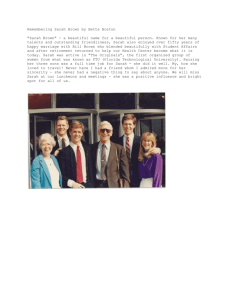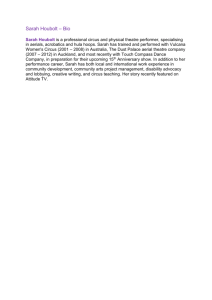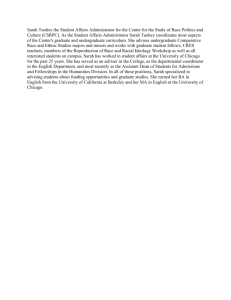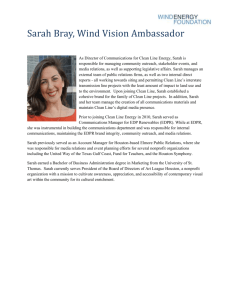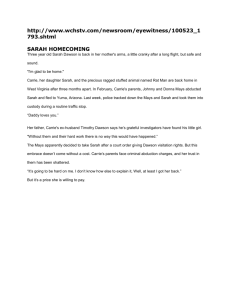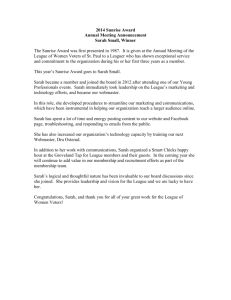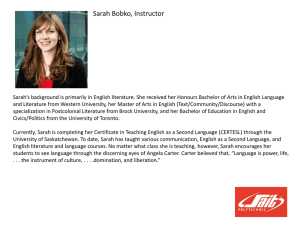Learning Objectives: How to foster the resilience of our community`s
advertisement
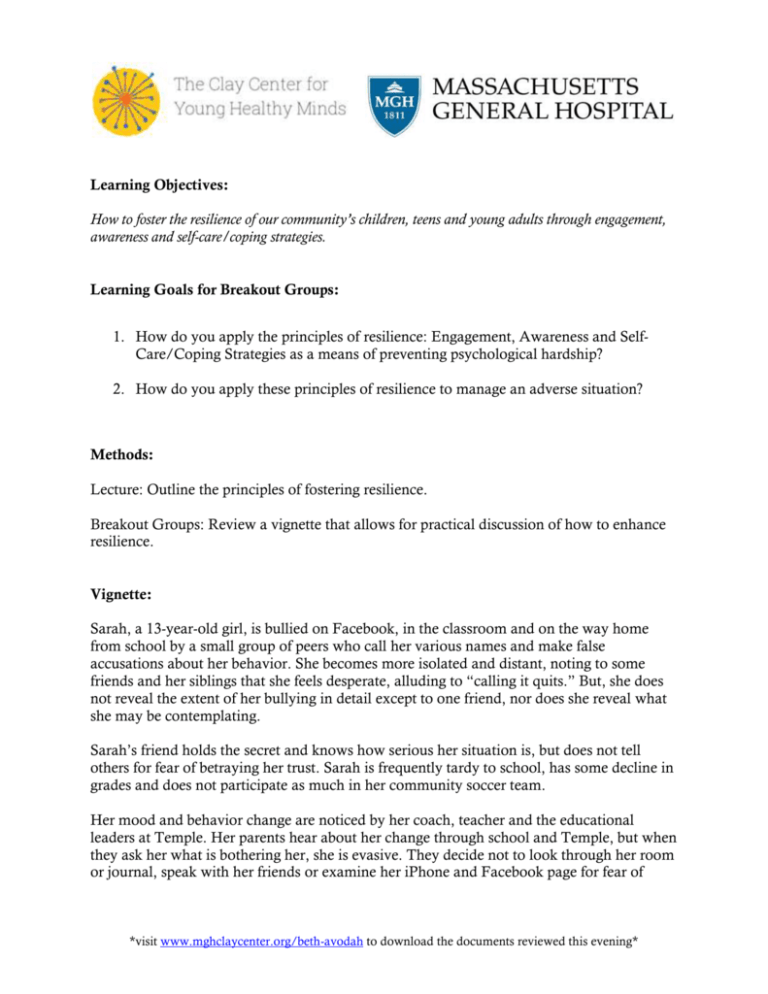
Learning Objectives: How to foster the resilience of our community’s children, teens and young adults through engagement, awareness and self-care/coping strategies. Learning Goals for Breakout Groups: 1. How do you apply the principles of resilience: Engagement, Awareness and SelfCare/Coping Strategies as a means of preventing psychological hardship? 2. How do you apply these principles of resilience to manage an adverse situation? Methods: Lecture: Outline the principles of fostering resilience. Breakout Groups: Review a vignette that allows for practical discussion of how to enhance resilience. Vignette: Sarah, a 13-year-old girl, is bullied on Facebook, in the classroom and on the way home from school by a small group of peers who call her various names and make false accusations about her behavior. She becomes more isolated and distant, noting to some friends and her siblings that she feels desperate, alluding to “calling it quits.” But, she does not reveal the extent of her bullying in detail except to one friend, nor does she reveal what she may be contemplating. Sarah’s friend holds the secret and knows how serious her situation is, but does not tell others for fear of betraying her trust. Sarah is frequently tardy to school, has some decline in grades and does not participate as much in her community soccer team. Her mood and behavior change are noticed by her coach, teacher and the educational leaders at Temple. Her parents hear about her change through school and Temple, but when they ask her what is bothering her, she is evasive. They decide not to look through her room or journal, speak with her friends or examine her iPhone and Facebook page for fear of *visit www.mghclaycenter.org/beth-avodah to download the documents reviewed this evening* being too intrusive. They do reach out to the Rabbi and school teacher, but neither can provide any details as to what may be causing Sarah’s change. The adults as well as Sarah are aware that there is stress in her life. Her mom and dad talk with each other about it with great concern, and even consider talking with her guidance counselor. They also consider how Sarah has been faring in terms of her decline in social, religious, academic and athletic life, and note that she has not been getting enough sleep. In short, she is not doing well on all fronts. One day, her mom receives a call at work that Sarah never arrived at school. When her mom returns home, she finds a note from Sarah saying that she took some Tylenol to “put an end to things.” She rushes Sarah to the local emergency department where it’s discovered that Sarah had taken eight Extra Strength Tylenol. While she is medically stable, she is diagnosed with possible clinical depression by the doctor who treats her. Questions for Discussion: For the questions below, please consider how we could better implement the principles of resilience for Sarah, her parents and the community. 1. What is your general response to the scenario illustrated above? 2. How can Sarah, her parents and the community (school, friends, Temple) utilize engagement, awareness and self-care/coping strategies to prevent or respond to this kind of serious event? 3. Are there lessons we can all learn about how to prevent and cope with adversity in our own life, as well as with other kinds of problems? How can these lessons help us to become more resilient? *visit www.mghclaycenter.org/beth-avodah to download the documents reviewed this evening*
